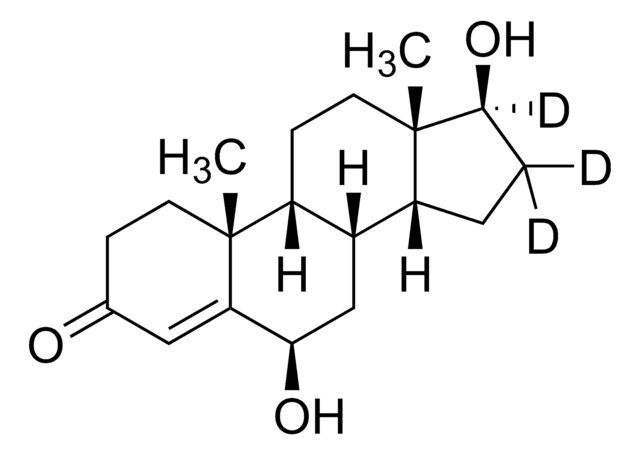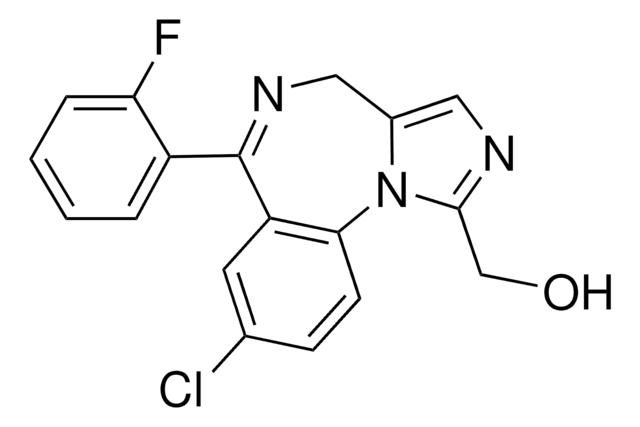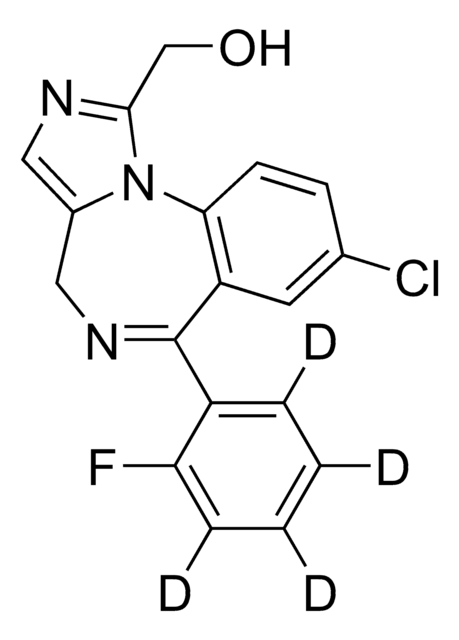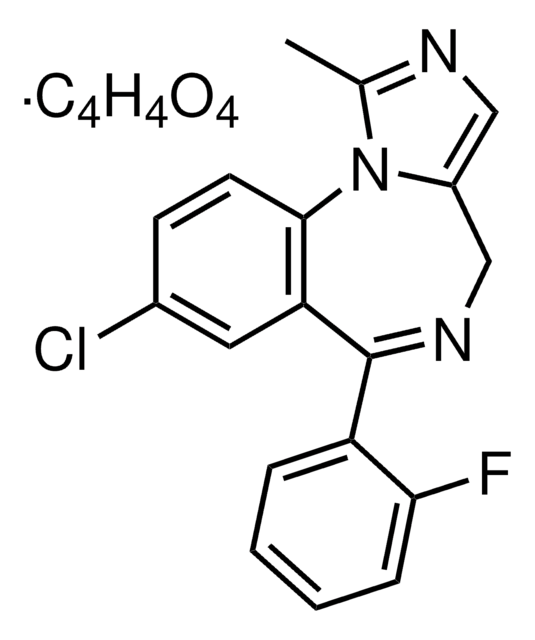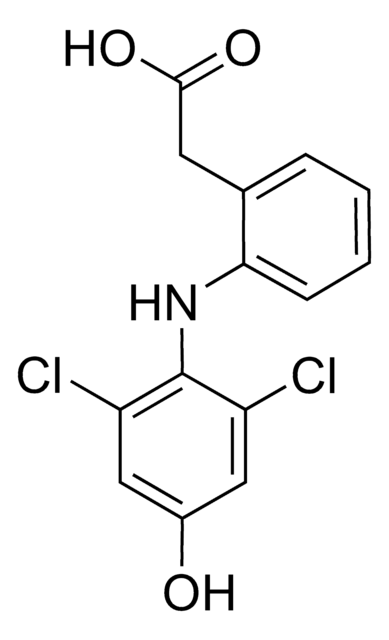H2898
6β-Hydroxytestosterone
≥97% (HPLC)
Synonym(s):
4-Androstene-6β,17β-diol-3-one, 6β, 17β,-Dihydroxyandrost-4-en-3-one
About This Item
Recommended Products
sterility
non-sterile
Quality Level
Assay
≥97% (HPLC)
form
powder
drug control
regulated under CDSA - not available from Sigma-Aldrich Canada
solubility
methanol: 50 mg/mL, clear, colorless
shipped in
ambient
storage temp.
room temp
SMILES string
C[C@]12CC[C@H]3[C@@H](C[C@@H](O)C4=CC(=O)CC[C@]34C)[C@@H]1CC[C@@H]2O
InChI
1S/C19H28O3/c1-18-7-5-11(20)9-15(18)16(21)10-12-13-3-4-17(22)19(13,2)8-6-14(12)18/h9,12-14,16-17,21-22H,3-8,10H2,1-2H3/t12-,13-,14-,16+,17-,18+,19-/m0/s1
InChI key
XSEGWEUVSZRCBC-ZVBLRVHNSA-N
Looking for similar products? Visit Product Comparison Guide
Application
Biochem/physiol Actions
Signal Word
Danger
Hazard Statements
Precautionary Statements
Hazard Classifications
Carc. 2 - Repr. 1B
Storage Class Code
6.1C - Combustible acute toxic Cat.3 / toxic compounds or compounds which causing chronic effects
WGK
WGK 3
Flash Point(F)
Not applicable
Flash Point(C)
Not applicable
Personal Protective Equipment
Choose from one of the most recent versions:
Already Own This Product?
Find documentation for the products that you have recently purchased in the Document Library.
Customers Also Viewed
Our team of scientists has experience in all areas of research including Life Science, Material Science, Chemical Synthesis, Chromatography, Analytical and many others.
Contact Technical Service
